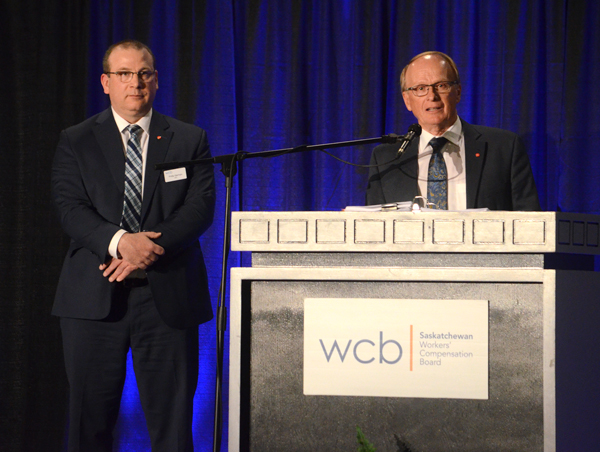
The Saskatchewan Workers’ Compensation Board is proposing an average employer premium rate freeze for 2020.
According to a press release sent out Wednesday, the 2020 average preliminary rate will remain at $1.17 per hundred dollars of payroll, the same as in 2019. The freeze follows 12 consecutive years of decreases. The announcement was made in Prince Albert at the WCBs annual rate-setting meeting with workers, employers and other stakeholders.
While the average rate will neither rise nor fall, two-thirds of employers will see an increase in their industry premium rate.
“The economy plays a factor in whether our payroll will increase or decrease. We’re also seeing a consistent number of serious injuries occurring annually, which impacts claims costs,” WCB CEO Phil Germain said in a press release.
“When claims costs increase at a faster rate than payroll, this impacts premium rates.”
According to the WCB, claims costs increased by 7.62 per cent from 2017 to 2018. A significant increase in the number of fatalities and increases in mental health claims costs are some of the drivers in the increase in claims costs.
“Premium rates are what employers pay us to fund the compensation system. Every year based on claims experience and payroll, those premium rates could go up or down, and we want to communicate to employers transparently what’s happening to premium rates,” Germain said following Wednesday’s meeting in Prince Albert.
“This year, it looks like it’s going to stay the same. That’s good news. Obviously, (employers) would prefer lower premium rates, but they don’t want premium rates to spike up.”
Germain added that if some of the current initiatives are successful, the WCB could see premium rates go down again in future years.
“The cheapest claim is the one that never happens,” Germain said.
“A lot of (our) efforts involve trying to prevent injuries, in particular, the real serious injuries that really upend people’s lives and cost the system a lot of money. It’s a win-win for everybody if serious injuries can be eliminated.”
Germain said that once an injury does happen, there is a lot employers, workers and the WCB need to do to make sure everyone reaches the best outcome possible. According to Germain, research shows returning people to work is healthier for them in the long run. It also saves WCB and employers money.
When it comes to mental health concerns, Germain said it is leading to a handful of challenges both for WCB and for employers in general.
‘Employers are recognizing it as a legitimate work-related issue, and are trying to figure out what they can do to prevent these from happening, or if they do happen how they can manage them more effectively within the workplace,” he said.
“These are not easy issues to work through.”
The WCB was teaching all staff how to best handle psychological-related claims, but teaching 200 people how to do that was a slow process. Instead, the WCB has created a smaller team that will be taught to deal with psychological claims more effectively.
All psychological claims will be triaged into that smaller unit.
“It’s better for the staff and it’s better for the customers overall that we have this smaller unit that’s highly trained and highly effective in trying to deal with psychological claims,” Germain said.
Following the discussion about rate increases, the WCB took questions from those in attendance and employers tuned in online. Many questions dealt with broader concerns regarding the WCB process.
“I think employers do understand we have one of the lowest premium rates in Canada, Germain said.
“Where employers are more frustrated … is in getting the information they need to effectively return workers back to work.”
Germain said ensuring everyone has the right information to make the right decisions quickly has been a challenge.
‘We are working on it,” he said.
“There are projects and initiatives to try to get that information … quicker and expedite the dissemination of that information.”
Going forward, the other focus is on preventing serious injuries and fatalities. That will require cooperation from workers, unions and employers.
“It’s all of us working together to identify the situations that are causing serious injuries and fatalities,” Germain said, “and what it is we can do to eliminate them.”

